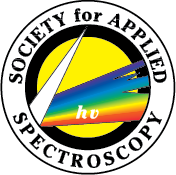Miniaturized Chromatographic Approaches to Pharmaceutical Analysis
Pr. James Grinias
Abstract: The importance of UHPLC in pharmaceutical analysis continues to grow, although many applications still rely upon outdated column/instrument technology that is slow and generates larger amounts of chemical waste. In this presentation, technical strategies designed to reduce the cost and/or volume of various aspects of pharmaceutical workflows will be described. Compact liquid chromatography instrumentation that utilizes capillary-scale columns enables effective analysis with a 1000-fold reduction in solvent consumption relative to standard HPLC methods. This methodology has been applied to impurity, metabolite, and dissolution testing in both over-the-counter and prescription analgesic drugs. Progress towards coupling this compact instrumentation directly to reagent flasks for real-time synthetic reaction monitoring will also be described.
Bio: James Grinias is currently an Associate Professor in the Department of Chemistry & Biochemistry at Rowan University in Glassboro, NJ. His research interests include improving the throughput and efficiency of chromatographic separations and the miniaturization of chemical measurement techniques. He received his Ph.D. from the University of North Carolina at Chapel Hill in 2014 and the moved onto a postdoctoral fellowship at the University of Michigan until the end of 2016. James has received a number of awards for his work to date, including the HPLC 2013 Csaba Horváth Award, the 2020 Young Investigator Award from the Chinese American Chromatography Association, a National Science Foundation CAREER grant, and the 2021 American Chemical Society Satinder Ahuja Young Investigator in Separation Science Award. He was also named to The Analytical Scientist’s “Top 40 Under 40” Power List in 2018. To date, he has published over 30 articles and given over 80 oral/poster presentations.
